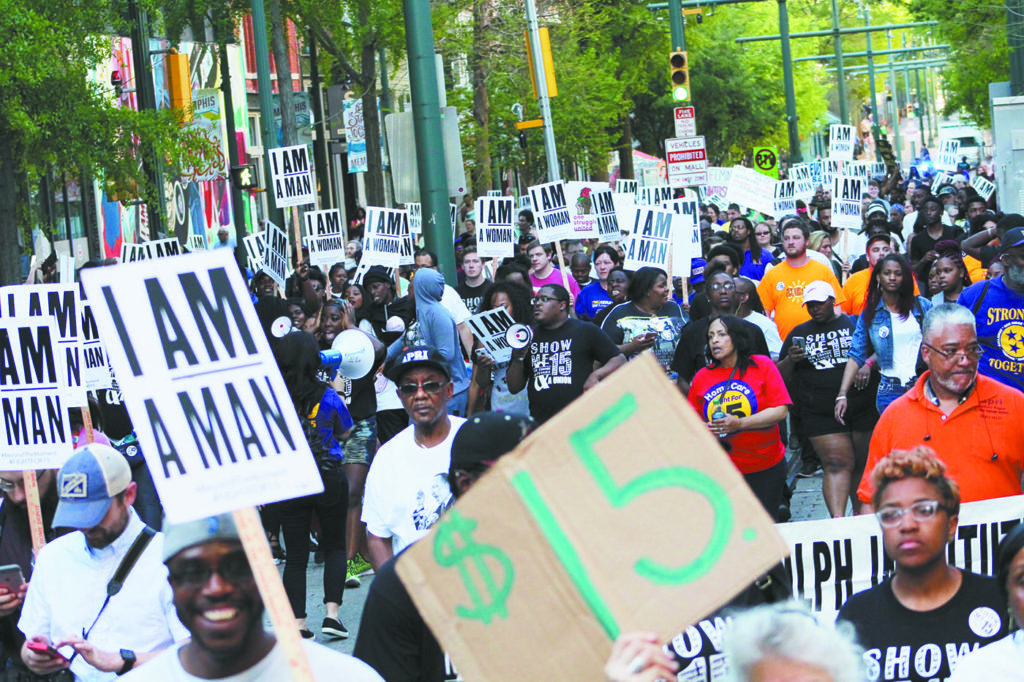By Michele Nyberg
MEMPHIS, TN — Civil rights leaders, clergy, union members and community activists on Tuesday advocated a $15 minimum wage while commemorating the 49th anniversary of the Rev. Dr. Martin Luther King’s assassination.
“In this country, 52 percent of African Americans make less than a living wage,” said the Rev. William Barber, president of the NAACP in North Carolina. “We have 6 million people in this country whose only income is food stamps.”
Tuesday’s memorial activities culminated in a march from City Hall to the Lorraine Motel, now the National Civil Rights Museum, where religious services were held at the site of Rev. King’s murder. The protest was anchored by the Fight for Fifteen movement and The Official Black Lives Matter Memphis Chapter. Demonstrators want economic and racial justice, and continuation of Dr. King’s legacy by increasing the national minimum wage to $15 an hour.
“The poor people’s movement is still relevant 49 years after the assassination, because people don’t have a living wage and poverty is still an effect of capitalism,” said Renae Taylor, a member of the Official Black Lives Matter Memphis Chapter.
Rev. Barber said 62 million people make less than a living wage.
“Think about that,” he said. “We are locking people up for fighting for fifteen (dollars an hour wages) while 400 (extremely wealthy) families make an average of $97,000 an hour…
“What we see in this country is the very people making these policies are not the people who have to live the policies,” Barber said. “That is why we have to speak up.”
Speakers included Mary Kay Henry, president of the Service Employees International Union (SEIU), and Ash-Lee Henderson, co-director of the Highlander Center in Grundy County where Dr. King was trained in nonviolent direct action.
Hundreds of people came to Memphis from across the south for the events, filling the streets as the Talladega College marching band ushered people toward the Lorraine. At 6:01 p.m., the time that Dr. King was murdered, protesters kneeled in silence while local clergy led a prayer in remembrance. When demonstrators arrived at the Lorraine, local civil rights leaders and clergy continued to give prayers and speeches emphasizing the need to address poverty and structural racism in communities of color.
“We all know that Martin Luther King was a firm believer for low wage workers,” said Ashley Cathey, a fast food restaurant employee who’s also leading the Fight For 15 movement. “He came here in 1968 to risk his life for the sanitation workers who only made $2.35 (an hour) at the time. We are here to show solidarity and respect for Martin, and to show people that we are still fighting for the dream.”
Events throughout the day were to teach and support activists how to sustain the national movement for racial and economic justice, while bringing the words and actions of Dr. King to fruition. The Official Black Lives Matter Chapter led a teach-in before the protest to ground the events historically and emphasize the importance of intersectionality within the movement.



